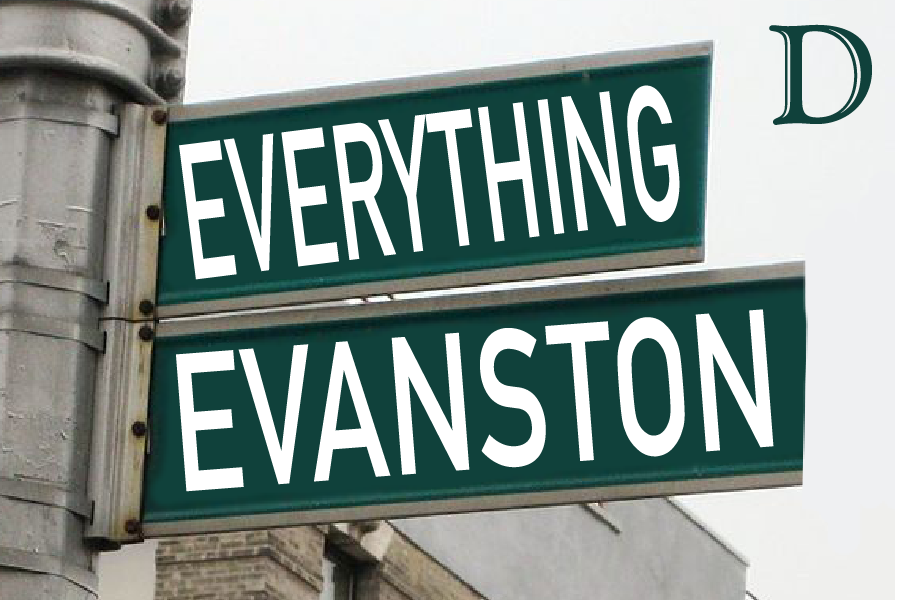 Communication Prof. Barbara Butts believes stage management requires a diverse set of leadership skills, and she wants her students to be able to use them both inside and outside the theater.
Communication Prof. Barbara Butts believes stage management requires a diverse set of leadership skills, and she wants her students to be able to use them both inside and outside the theater.
BARBARA BUTTS: What stage management really is is, it’s leadership, it’s management, it’s organization, it’s communication and it’s problem-solving. Those are the big things that I think I teach, and stage management is the vehicle that I use to deliver those skills and topics to the students.
EDWARD SIMON CRUZ: From The Daily Northwestern, I’m Edward Simon Cruz. This is NU Declassified, a look into how Wildcats thrive and survive at Northwestern.
This quarter, we’ll be highlighting professors from different corners of campus. Today, we’ll be speaking with Communication Prof. Barbara Butts, who teaches stage management at NU. Butts previously served as the production manager and managing director of the Virginia Wadsworth Wirtz Center for the Performing Arts for 13 years.
In high school, Butts wanted to be a doctor until her drama teacher encouraged her to take a summer internship at a theatre program.
BARBARA BUTTS: I tell my students I was the worst then, and I just never left, and I became fascinated about telling stories, but I always wanted to be the person who helped facilitate and sort of be in charge of bringing all the voices together and creating something that I was in the center of and really helped support the storytelling.
EDWARD SIMON CRUZ: After studying stage management in college, Butts worked as a professional stage and production manager for 17 years.
As Butts learned from her professors and moved through various internships and jobs, she says she discovered her true purpose as a leader.
BARBARA BUTTS: I used to be like, “I could will you to do what you need to do right now,” and no one has that superpower. It’s like, “Oh, how can I communicate? How can I motivate?” It was all those lessons that I was starting to learn.
EDWARD SIMON CRUZ: Butts begins her classes on stage management by asking students to discuss an object important to them. She says this activity helps them recognize the different perspectives among their classmates.
These perspectives become useful when Butts asks students how they would respond to complex scenarios involving sets, lighting and other theatrical components as a stage manager.
BARBARA BUTTS: But I don’t sit there in front of a class and yammer at them, because ultimately they’re gonna be in real-life situations where they’re gonna have to do this deep thinking on their own and then they’re gonna know they can collaborate, or they can ask themselves, “Is this my problem to solve?”
EDWARD SIMON CRUZ: In 2020, a student wrote about the lack of support he received as a lighting designer in the University’s theatre department. After his posts became public, Butts says she reworked the required freshman class Production in Context to incorporate more undergraduate peer mentors and collaborative, design-based activities.
Butts says this focus on collaboration and problem-solving teaches students life lessons that extend outside the theater.
BARBARA BUTTS: I think everything that I’m doing in these classes actually pertains to just being a good human and also being in the world and understanding, we’re gonna keep bumping into people with different perspectives and different ideas, and maybe it’s through storytelling that we reach people.
EDWARD SIMON CRUZ: One of her former students, Margaret Russell, graduated from the School of Communication in 2005 and became a stage manager at Cirque du Soleil. Later, she got her medical degree at the Feinberg School of Medicine in 2016 and became a physician.
Russell said stage management taught her skills that remained useful in medicine, like listening and collaborating with others.
MARGARET RUSSELL: It’s a huge piece of what I did then and what I did at Cirque du Soleil and what I’m doing now: being a good teammate and using these different skills of every person on your team, because everyone brings different but important pieces to the table.
EDWARD SIMON CRUZ: Rafael Zhang, another former student of Butts, graduated from Communication in 2019. He says Butts pushed him to get involved with dance shows — a change from the plays and musicals he usually worked on.
Zhang says working on dance shows made him think about performers’ movements more actively than he had before.
RAFAEL ZHANG: There were many things that I learned that I brought into my current position, and I know for sure in the future that will help me, because I’ve learned and I’ve worked on so many different forms of performances that whatever I work on in the future, I know some aspect of it is something that I’ve done and I’m familiar with.
EDWARD SIMON CRUZ: Beyond her work in the theatre department, Butts says she wants to give all students the opportunity to succeed. Butts previously served on the board of AccessibleNU, and she worked with the group to pilot the note-taking tool Glean for students. Butts says that supporting her daughter’s mental health needs as she grew up opened her eyes to the benefits of providing accommodations.
BARBARA BUTTS: I think there’s a place for everybody. And if there’s not, we’re not building the correct place. And if I can gift that to my students and they want to build a better place, I think no matter in what arena they work in, if I can model that for them, inspire them to do that, join them in doing that, I think that we together are doing something that’s really important in this world.
EDWARD SIMON CRUZ: From The Daily Northwestern, I’m Edward Simon Cruz. Thanks for listening to another episode of NU Declassified. This episode was reported and produced by me, Edward Simon Cruz. The audio editor of The Daily Northwestern is Carlotta Angiolillo, the digital managing editors are Sonya Dymova and Micah Sandy, and the editor in chief is Jacob Wendler. Make sure to subscribe to The Daily Northwestern’s podcasts on Spotify, Apple Podcasts or SoundCloud to hear more episodes like this.
Email: [email protected]
X: @edwardsimoncruz
RELATED STORIES:
— Five NU faculty members receive 2024 teaching awards
— In Focus: Students with chronic illnesses feel unsupported by University services
— Students discuss frustration with department, support for theatre designers





